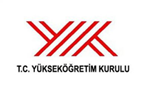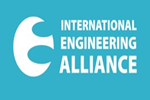Accreditation
Bilindiği gibi mühendislik toplumda teknik sorunları çözerek yaşam kalitemizi arttırmaya odaklanmış olan bir meslektir. Çok gelişmiş bulunan ulaşım ve iletişim olanakları nedeniyle geçmiştekinden daha küresel bir meslek haline gelmiş durumdadır. Bu durum özellikle mühendisleri kendi ülkelerinde olduğu gibi yabancı ülkelerde de iş bulup çalışması olanağını arttırmıştır. Bu oluşum mühendislere daha fazla beceriye sahip olmaları gereğinin yanı sıra önemli sorumluluklar da yüklemektedir. Bu nedenle görülen eğitimin şeffaf, alınan diplomaların tanınır olması ve küresel ölçekte belirlenmiş olan asgari şartları sağlaması günümüzde büyük önem kazanmıştır. Bu şartların karşılandığının belgelenmesinde en etkin yollardan birisi de söz konusu mühendislik programının yetkili kurumlar tarafından akredite edilmiş olmalarıdır.
- What is accreditation?
Accreditation is the process of evaluating and approving the technical and administrative competencies of an organization that produces a product or service, carried out by an official authority authorized by a recognized institution. It aims to demonstrate the conformity of the product or service with the conditions and standards demanded by the market, and this evaluation process is repeated at regular intervals.
- Why is accreditation important for the Mechanical Engineering Department at Istanbul University?
- It enables the department to create opportunities for self-updating by periodically evaluating its engineering undergraduate programs according to accepted criteria.
- It ensures that their accredited programs are announced to the public, thereby raising awareness of the community in this regard.
- It encourages the continuous improvement of their programs, promoting self-development.
- It provides a competitive advantage in the academic environment by positively influencing the preferences of students and/or parents.
- Why is accreditation important for students?
- It proves the professional validity and equivalence of their diplomas in national/international contexts.
- It provides documented evidence that they possess the qualifications to meet the expected performance standards in their work environments.
- It offers an advantage in terms of diploma equivalence and recognition during the admission process to their potential postgraduate education.
- Who carries out accreditation?
Accreditation evaluations are conducted by independent civil society organizations that have up-to-date and clear criteria, well-defined and transparent processes, and are recognized and authorized by national and/or international authorities. In the national context, MÜDEK (Association for Evaluation and Accreditation of Engineering Programs) is the only institution recognized by the Higher Education Council (YÖK) to accredit national engineering undergraduate programs and possesses all these qualifications.
Brief history of MÜDEK
- Established in 2003 and started evaluating national engineering undergraduate programs.
- Became a member of the European Network for Accreditation of Engineering Education (ENAEE) in 2006.
- Gained legal personality and was recognized by the Higher Education Council (YÖK) as the national quality assurance organization for engineering undergraduate programs in 2007.
- Authorized by ENAEE to award the EUR-ACE label to accredited engineering programs in 2009.
- Became a full member of the International Engineering Alliance (IEA) in 2011.
- Evaluated over 500 engineering undergraduate programs in more than 50 foundation and state universities until 2016.
- ÜDEK is a member of two major and important international accreditation organization umbrella platforms
ENAEE (European Network for Accreditation of Engineering Education): It is an organization that provides international recognition at the European level for the accreditation of engineering undergraduate programs and includes accreditation bodies from the following countries:
- Turkey
- Germany
- France
- United Kingdom
- Ireland
- Portugal
- Russia
- Romania
- Italy
- Poland
- Switzerland
- Spain
- Finland
A program accredited by MÜDEK in Turkey is considered equivalent to programs accredited by their respective institutions in these countries.
IEA (International Engineering Alliance-Washington Accord): This platform recognizes and acknowledges the programs accredited by the authorized accreditation bodies of member countries as equivalent, based on the "Washington Accord" agreement they have signed. The member countries of this platform are as follows:
- Turkey(*)
- Australia
- Canada
- Taiwan
- Hong Kong
- India
- Japan
- Ireland(*)
- Malaysia
- South Korea
- New Zealand
- Russia(*)
- Singapore
- South Africa
- Sri Lanka
- United Kingdom(*)
- United States of America
As a result, a program accredited by MÜDEK (Association for Evaluation and Accreditation of Engineering Programs) obtains significant advantages in terms of recognition and validity of its graduates' diplomas in 25 different countries, both in their own country and abroad. (*) Also a member of ENAEE.
- What is the EUR-ACE Label?
It is a certificate given to engineering undergraduate programs accredited by institutions authorized by ENAEE in countries within the European higher education area. It is highly beneficial in determining the equivalence of diplomas in Europe. All undergraduate programs accredited by MÜDEK in our country also qualify to receive the EUR-ACE label.
- What are the criteria for accreditation?
MÜDEK evaluates programs that meet the following criteria and grants accreditation to engineering undergraduate programs:
Criterion 1 :
Students The quality, development, and achievements of students, who are one of the inputs of an engineering program, are important in evaluating the program. Therefore, the quality of students, their infrastructure upon admission, student exchange programs, horizontal-vertical transfers, Course Placement (ÇAP) and Proficiency Development (YAP) programs and their applications, the advisory services they receive, the transparency and fairness of evaluations, graduation requirements, and the mechanisms that control them are evaluated.
Criterion 2:
Program Educational Objectives The career objectives (program objectives) that program graduates are expected to achieve in the near future should be defined by considering stakeholder opinions, be aligned with the institution's mission, be published and communicated to the public, and be updated at appropriate intervals.
Criterion 3 :
Program Outcomes These are the knowledge, skills, and behaviors that the program must impart to students until graduation. The program outcomes should encompass the following MÜDEK outcomes and be measured through a system to prove that they are achieved by graduates:
- Mathematics, basic science, and basic engineering knowledge
- Ability to identify and solve engineering problems
- Ability to design a process, system, or product
- Ability to use modern tools
- Ability to design, conduct, and evaluate experiments
- Aptitude for teamwork
- Communication skills in Turkish and foreign languages
- Awareness of the necessity of lifelong learning
- Ethical awareness
- Awareness of project management, innovation, and entrepreneurship
- Awareness of universal and societal dimensions of health, environment, and safety in practice.
Criterion 4:
Continuous Improvement The results obtained from the measurement-evaluation system established for the program should be used in the continuous improvement of the program, and evidence regarding this should be presented.
Criterion 5 :
Curriculum The program should have a curriculum that supports its educational objectives and outcomes, and it should include the following components:
- At least 32 credits of mathematics and basic science courses.
- At least 48 credits of engineering courses.
- Sufficient general education courses.
- At least one major design experience.
Criterion 6 :
Faculty The faculty is a fundamental element of the program. Therefore, the faculty should be sufficient in quantity and quality to cover all areas of the program, and the criteria for appointment and promotion to faculty positions should be defined and implemented to ensure this.
Criterion 7 :
Infrastructure Classrooms, laboratories, libraries, computer infrastructure, etc. should be adequate. Sufficient safety measures should be taken in laboratories and other facilities, and infrastructure arrangements should be made for individuals with disabilities. Non-curricular social activities should be supported.
Criterion 8 :
Institutional Support and Financial Resources The university's administrative support and resources should be at a level that ensures the quality of the program, and there should be sufficient support staff (administrative, technical). The resources should be sufficient to attract a qualified faculty.
Criterion 9 :
Organization and Decision-Making Processes The overall functioning of the university, the relationships between the Rectorate/Faculty/Department, the decision-making mechanisms within the department, and the consistency of these processes are evaluated..
Criterion 10:
Program-Specific Criteria (e.g., Mechanical Engineering) This criterion specifies additional conditions that the relevant engineering program should meet. For example, additional criteria for the Mechanical Engineering Program include:
- Knowledge of chemistry and physics, with depth in at least one area
- Knowledge of multivariable calculus and differential equations
- Ability to design and operate both thermal and mechanical systems.
- Hem ısıl, hem de mekanik sistemler üzerinde tasarım ve çalışma becerisinin kazandırılmış olması gerekmektedir.
If there are no deficiencies in these criteria, the program is accredited by MÜDEK.
- What is the situation with the programs conducted by the Mechanical Engineering Department?
The most important prerequisite for applying to the MÜDEK accreditation process, which is based on outcome evaluations, is that the program has graduated students at the time of application. Therefore, in early 2015, the necessary application was made for the accreditation of the Mechanical Engineering (English) undergraduate program, which had already graduated for 4 years, and after a successful process, the program received MÜDEK accreditation for a period of 5 years in July 2016. This program also has the right to use the EUR-ACE label on the diplomas of its graduates for the same period. MÜDEK has determined the validity period of the accreditation as September 30, 2022, to September 30, 2027, for the Mechanical Engineering (English) Undergraduate Program, May 1, 2022, to September 30, 2027, for the Mechanical Engineering (Turkish) Undergraduate Program, and May 1, 2022, to September 30, 2024, for the Mechatronics Engineering Undergraduate Program. Therefore, all graduates who graduated or will graduate during this time frame will receive their diplomas with MÜDEK accreditation.




